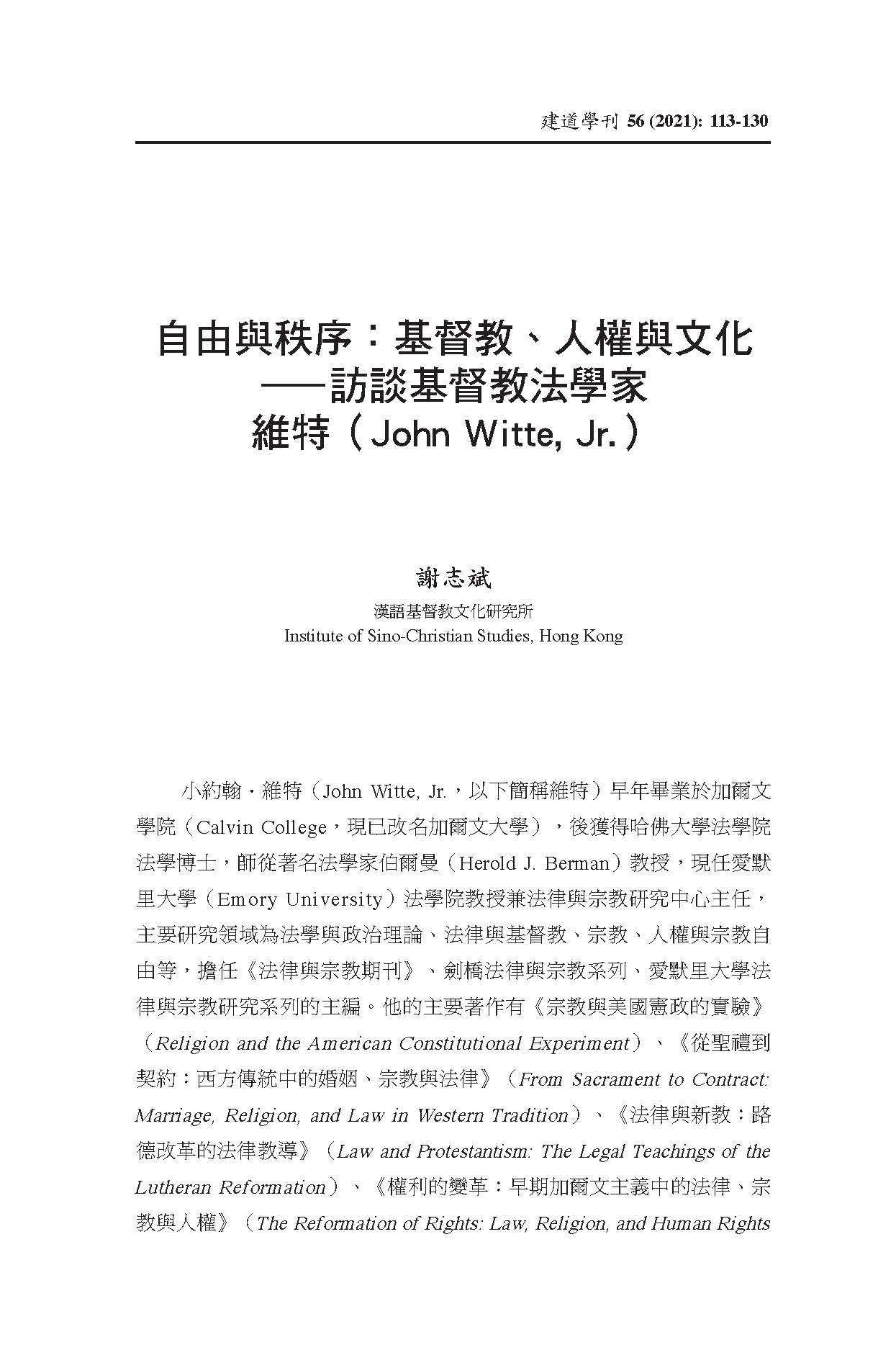自由與秩序:基督教、人權與文化—訪談基督教法學家維特(John Witte, Jr.) / 謝志斌
謝志斌
撮要
本人以一位華人學者的問題意識訪談了基督教法學家維特,展現他作為基督徒的虔敬與作為法學家的對社會、政治的自由與秩序的責任以及對文化資源的開放性。他堅持人權的規範需要一種人權文化的支持;基督教關於人的尊嚴、關於我們對上帝和鄰人負有的責任和權利、關於我們擁有先知、祭司和君王三種職分所應有的發言、敬拜、治理三種天賦權利等基本觀念為權利框架確立了基本原則。基督徒參與人權事業是其身分和信仰的真實見證和產物。對於華人處境的基督徒和基督教學者來說,我們應將我們的傳統包括宗教資源帶入關於人權議題的公共討論中,貢獻也修正自身,從而為人權思想及其實踐找到可以植根並成長的土壤,並以合適的語言和方式表達。
ABSTRACT
This interview presents a Chinese scholar’s engagement with an American Christian jurist John Witte, Jr. with a Chinese perspective. It shows Witte’s faithfulness as a Christian as well as responsibility to social and political freedom and order as a jurist alongside his openness to cultural resources. He insists that the norms of human rights demand the support of human rights culture. Christianity can make its own contributions to the basic framework and principles of human rights in the following aspects: Christian idea of human dignity, our responsibility and rights to God and our neighbors, our rights to speech, worship and governance derived from our stewardship as prophets, priests and kings, etc. Furthermore, Christian engagement in human rights agenda is the witness and product of their identity and faith. For the Christians and Christian scholars in the Chinese context, we are obliged to contribute our own tradition including religious resources to the public discourse on human rights while revising these resources themselves. In this way, we may find the root for the thought and practice of human rights and thus express it in proper ways.
原載於《建道學刊》56期(2021年7月),頁 113-130。
最新文章
新手牧者研究計劃(三):新手牧者的身心靈狀態 / 盧慧儀
2025 年 11 月 19 日
個體與關係:滕近輝思想中「深化」的靈性觀 / 倪步曉
2025 年 11 月 18 日
香港九龍塘基督教中華宣道會之起源和發展史/陳智衡
2025 年 10 月 20 日
编辑精选
[電子書]困境與抉擇:「建道研究中心30週年誌慶」跨學科研討會論文集/廖炳堂、倪步曉主編
2025 年 1 月 2 日
從梧州到長洲:建道神學院125年的挑戰與恩典 / 陳智衡
2023 年 10 月 1 日
微小教會的見證/高銘謙
2023 年 6 月 1 日







